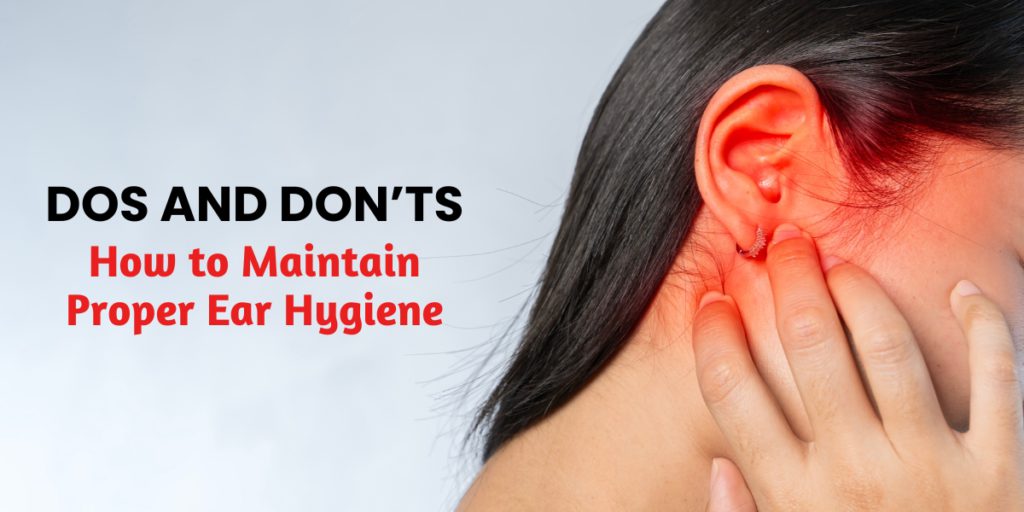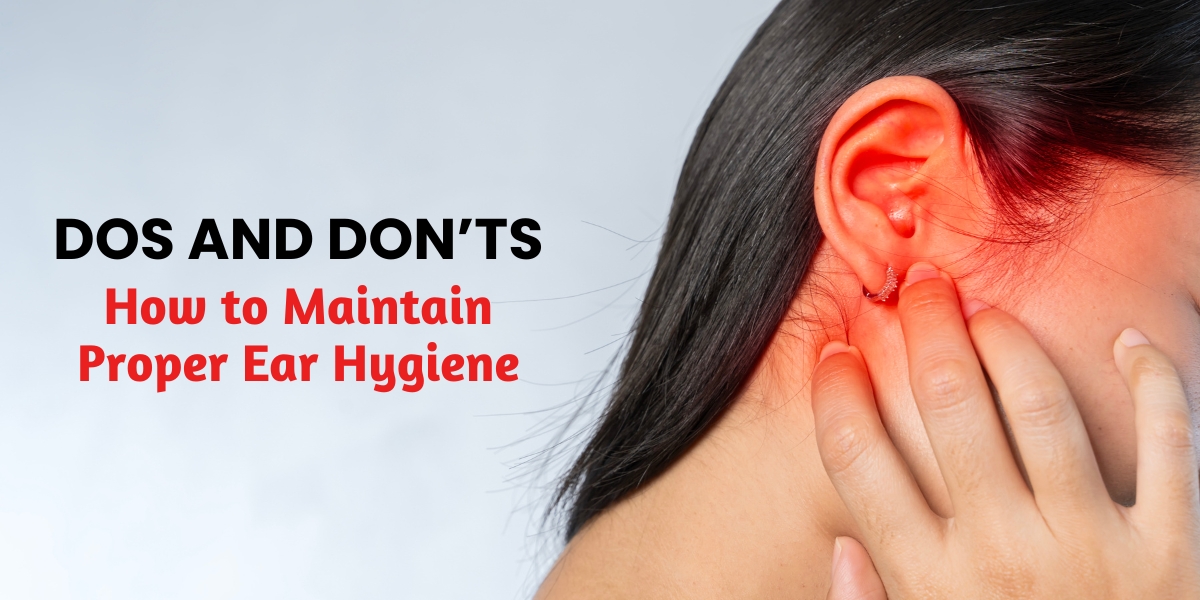How to Maintain Proper Ear Hygiene: Dos and Don’ts

Maintaining proper ear hygiene is essential for protecting your hearing and overall health. Many people overlook the importance of taking care of their ears, which can lead to discomfort, hearing loss, or infections.
Understanding the Importance of Ear Hygiene
The ear is a delicate and self-cleaning organ that plays a critical role in hearing and balance. However, improper care can lead to issues like earwax buildup, infections, and even damage to the eardrum. Knowing how to maintain good ear hygiene is crucial for avoiding these problems.
Dos for Proper Ear Hygiene
1. Keep Your Ears Dry and Clean
Moisture in the ears can lead to bacterial and fungal infections. After bathing or swimming, ensure you dry your ears gently using a soft towel or a hairdryer on a low, cool setting. Pay special attention to drying the outer ear, as it is more prone to accumulating moisture.
2. Use Earwax Removal Methods Carefully
While earwax serves a protective function by trapping dust and debris, excessive buildup can cause discomfort. If necessary, use over-the-counter earwax removal drops to soften the wax. Consult a healthcare professional for safe earwax removal if you experience persistent blockage.
3. Protect Your Ears in Loud Environments
Prolonged exposure to loud noises can damage your hearing. Wear earplugs or noise-canceling headphones in loud environments such as concerts or construction sites. Protecting your ears in these settings reduces the risk of noise-induced hearing loss.
4. Schedule Regular Hearing Checkups
Regular visits to an audiologist or ENT specialist can help detect and address potential hearing issues early. Routine checkups are especially important if you work in noisy environments or are prone to ear infections.
5. Practice Good Earphone Hygiene
If you frequently use earbuds or headphones, clean them regularly to prevent bacterial buildup. Sharing earphones is not advisable, as it can spread bacteria and increase the risk of ear infections.
Don’ts for Proper Ear Hygiene
1. Avoid Using Cotton Swabs
One of the most common mistakes people make is using cotton swabs to clean their ears. Cotton swabs can push earwax deeper into the ear canal, leading to blockages or even injury to the eardrum. Let your ears self-clean, or seek professional help for deep cleaning.
2. Don’t Insert Foreign Objects into Your Ears
Never use sharp or pointed objects to remove earwax or scratch your ear canal. This can cause scratches, infections, or even perforation of the eardrum.
3. Avoid Excessive Ear Cleaning
Over-cleaning can strip the ears of their natural protective wax, leaving them vulnerable to infections. Clean your outer ear with a damp cloth, but avoid digging into the ear canal.
4. Don’t Ignore Symptoms of Ear Problems
If you experience symptoms like pain, discharge, hearing loss, or ringing in the ears (tinnitus), don’t ignore them. Seek medical attention promptly to address the underlying issue.
5. Avoid Swimming in Contaminated Water
Swimming in polluted water can introduce harmful bacteria into your ears, leading to infections such as swimmer’s ear. Always wear earplugs designed for swimming if you’re unsure about the water quality.
Signs of Poor Ear Hygiene
Knowing the warning signs of poor ear hygiene can help you take timely action. Look out for:
- Persistent itching or discomfort in the ears.
- Difficulty hearing or muffled sounds.
- Unusual discharge or foul odor from the ears.
- Pain or swelling in the ear canal.
If you notice any of these symptoms, consult Dr. Rohit Prasad is one of best ENT Specialist in Bhosari, Pune
Tips for Children’s Ear Hygiene
Children are particularly vulnerable to ear infections and injuries. Teach them the importance of gentle ear care and monitor their habits. Avoid letting children insert objects into their ears and encourage them to use ear protection in noisy environments.
Natural Remedies for Ear Health
1. Warm Compress
A warm compress can help relieve ear pain caused by wax buildup or minor infections. Apply it gently to the outer ear for 10–15 minutes.
2. Olive Oil Drops
Olive oil can soften hardened earwax, making it easier to remove. Warm a few drops of olive oil and carefully administer them into the ear canal.
3. Stay Hydrated
Drinking plenty of water helps maintain overall body health, including proper ear function. Adequate hydration supports the natural process of earwax movement.
Recent Post
-
Chronic Sinusitis: When Is It Time for Functional Endoscopic Sinus Surgery (FESS)?
-
Tonsillitis vs Chronic Throat Infection: Signs, Treatment & Home Care
-
What are the symptoms of throat issues?
-
Seasonal Allergies and Sinus Health: Tips for Relief
-
Common Ear Infections: Symptoms, Causes, and When to See a Doctor

